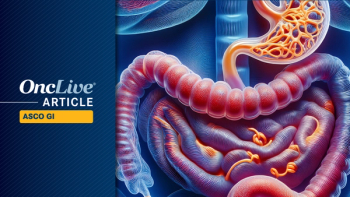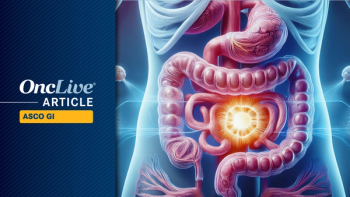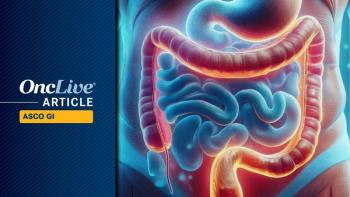
Eganelisib Could Enhance Responses With Nivolumab in Urothelial Carcinoma
February 11, 2021 - Eganelisib, a novel PI3K-y inhibitor, demonstrated higher responses rates with nivolumab in patients with metastatic urothelial carcinoma.
Eganelisib (IPI 549), a novel PI3K-y inhibitor, demonstrated higher responses rates with nivolumab (Opdivo) in patients with metastatic urothelial carcinoma (mUC), according to findings from the phase 2 MARIO-275 trial (NCT03980041) that were presented during the 2021 Genitourinary Cancers Symposium.
“PD-1 inhibitors have demonstrated clinical benefit in metastatic urothelial carcinoma. However, clinical benefit remains low, particularly in PD-L1–low patients, who have [an average] overall response rate of only 16%,” said study author Piotr Tomczak, of the Poznan University of Medical Sciences in Poznan, Poland.
The phase II MARIO-275 study included 49 patients with mUC who progressed on 1 or more platinum-based chemotherapy regimens and had no prior treatment with a checkpoint inhibitor. Study participants were stratified by baseline circulating monocytic myeloid suppressor cell (mMDSC) levels and randomized 2:1 to receive eganelisib plus nivolumab or placebo plus nivolumab.
Objective response rate (ORR) per RECIST v1.1 in patients with high baseline mMDSC levels (≥22.3) was the primary end point, and researchers also examined overall response rate (ORR), progression-free survival (PFS), and overall survival (OS).
Duration of exposure was a median of 15 weeks for patients treated with – and 11 weeks for the placebo arm.
While no mMDSC-high patients responded to treatment with eganelisib, there was a higher response rate in the overall population treated with the combination regimen, compared to placebo ([30.3%; 95% CI, 16-9] vs [25%; 95% CI, 7-52], respectively). Additionally, there was a 38.5% ORR in mMDSC-low patients who received eganelisib (95% CI, 20-59), compared to 23.1% in the mMDSC-low patients who received placebo (95% CI, 5-54).
There were 5 PD-L1–positive patients (TPS >1%) in the combination treatment group, of which 4 (80%) responded to the addition of eganelisib to nivolumab (95% CI, 28-100), compared to 2 of 4 (50%) in the placebo group (95% CI, 7-93). In PD-L1–negative patients (TPS <1%) 6 out of 23 patients (26.1%) responded to to the combination regimen (95% CI, 10-48), versus 1 of 7 (14.3%) in the placebo group (95% CI, 0-58).
“The combination demonstrated improved ORR, disease control rates, and PFS when compared to the control, especially in the PD-L1–negative patients, who represent approximately 70% of the patient population,” Tomczak said.
When it came to PFS, 9.1% of patients responded on the combination therapy, compared to 8% on the placebo arm.
Common all-grade adverse events (AEs) in the eganelisib and placebo arms were pyrexia (33% vs 0%, respectively), decreased appetite (30% vs 19%), pruitis (24% vs 6%), asthenia (21% vs 31%), and transaminase elevation (21% vs 6%). The most common grade 3 or higher AEs were hepatotoxicity (15% vs 0%, respectively), transaminase elevation (12% vs 6%), and rash (9% vs 0%). After a safety review, the eganelisib dose was reduced from 40 mg to 30 mg, which lowered the rate of hepatic AEs.
“Importantly, nivolumab monotherapy in the control arm of MARIO-275 demonstrated clinical activity consistent with monotherapy with nivolumab in CheckMate-275, further adding to our confidence in interpreting the contribution of eganelisib [with] nivolumab in the controlled study,” Tomczak said.
Based on these findings, a larger study is being planned in the future to further evaluate eganelisib in PD-L1–low patients.
“Given the magnitude of unmet need in the PD-L1–low patient [population], Infinity is planning a registration and labeling study exploring the potential benefit of eganelisib for PD-L1–low patients, more broadly in other indications,” Tomczak said.
Reference
- Tomczak T, Popovic L, Barthelemy P, et al. Preliminary analysis of a phase II, multicenter, randomized, active-control study to evaluate the efficacy and safety of eganelisib (IPI 549) in combination with nivolumab compared to nivolumab monotherapy in patients with advanced urothelial carcinoma. Presented at: 2021 Genitourinary Cancers Symposium; February 11-13, 2021; Virtual. Abstract 436.



































